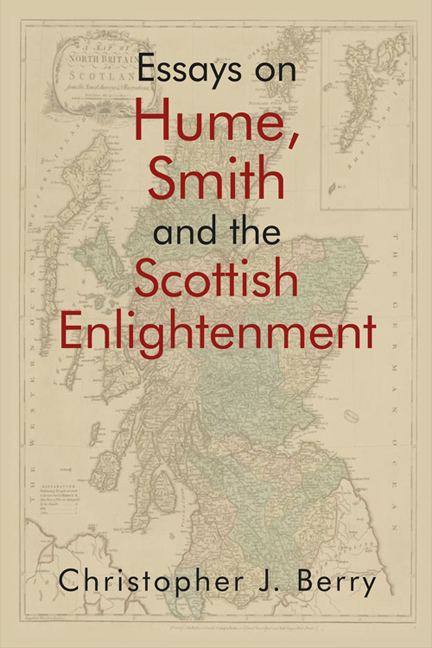9 - Hume on Rationality in History and Social Life
Published online by Cambridge University Press: 06 May 2021
Summary
The chief aim of this chapter is to identify and illustrate the normative character of Hume's theory of human nature and society, although a second, albeit implicit, aim is to indicate his affinity with the philosophes. To assist the subsequent discussion, some introductory remarks and stipulations are needed.
It was widely accepted by thinkers of the Enlightenment that, though humans were social creatures, this sociality was not constitutive, so that, despite the differences between societies, human nature remained constant and uniform. This position was overturned (with the work of Herder being of particular significance) and this newly articulated contrary view – that sociality is specific and constitutive of human nature – is here termed contextualist. Although it is now something of a commonplace to hold that human nature is in some manner and to some extent contextual, the nature of the relationship between human nature and social experience (the nub of contextualism) is contentious. Is it possible to have an intelligible concept of human nature per se, or is its contextual character such that the very variety and multiplicity of societal forms deprives the concept of any general non-specific intelligibility?
Much of the debate can be, not unfairly, characterised as concerned with some form of compromise, in particular with the location of some defensible constants. Owing to the problems now recognised in cross-cultural comprehension, such constants tend to be formal in character. Perhaps the most frequently employed (although there are attempts to utilise some form of biological substratum) is the notion of minimal rationality, which is to say, the application of certain constitutive or presuppositional features of social intercourse itself that will pertain equally to (say) contemporary Britons, the Azande and Periclean Athenians. Three different positions can be discerned and I will distinguish these in the ensuing discussion by using certain stipulative terms. The view that the differences between societies are immaterial to a comprehension of human nature is termed a formal account of social life. The reverse of this – that the differences between societies do make a material difference to the comprehension of human nature – is termed a substantive account of social life.
- Type
- Chapter
- Information
- Essays on Hume, Smith and the Scottish Enlightenment , pp. 146 - 162Publisher: Edinburgh University PressPrint publication year: 2018



